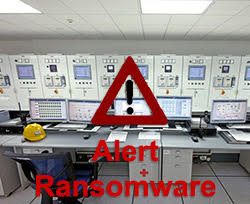Ransomware Caused Issues for Lansing, MI's Lighting and Utility Services Operation
 There is no question as to ransomware being a serious epidemic that is reaching across the aisle to assist cybercrooks with attacks on many different entities, including businesses, government agencies and now, utility companies.
There is no question as to ransomware being a serious epidemic that is reaching across the aisle to assist cybercrooks with attacks on many different entities, including businesses, government agencies and now, utility companies.
In the latest victim of ransomware, the Lansing Board of Water & Light (BWL) as succumb to a cyber-attack that partially shut down some of its utility services. The attack, from unconfirmed ransomware, was a result of a BWL employee opening up an email file attachment that contained ransomware. After opening the file, an unconfirmed ransomware threat was able to spread to other computers on the network at BWL causing officials to shut down their internal network and email services used by about 250 employees.
At the time of the attack, antivirus solutions on the systems were able to detect the ransomware threat and its spread leads to mounting issues that shuttered their customer assistance phone line. Fortunately, none of the water and light utility services were interrupted. Additionally, customers were still able to utilize the lbwl.com website for inquiries, service requests, and bill payments.
In light of BWL coming under attack from ransomware, a looming security hole could have been discovered within other utility companies that may be sparked by opening up a malicious email attachment. Because of recent ransomware attacks, some of which have been aimed at large companies or government agencies, people are becoming more aware of the threat such malware brings to the table.
While ransomware has proven to be a major problem for countless computer users around the world, it is now becoming a serious threat to certain entities. Just last week, a German Nuclear Power Plant was shut down on the 30th Anniversary of the Chernobyl disaster due to malware found on the facility's network that oversees the fuel handling system. Even though the malware was not ransomware, it proves how vulnerable utility facilities are to potentially force proactive security protection measures to be taken.
After the BWL ransomware incident took place, the utility provider informed the FBI and local Lansing police what occurred. Lucky for the utility company, their overall services were not put in jeopardy but by alerting officials, the word is getting around as to how ransomware has no boundaries.
The propagation of ransomware is now reaching new fronts, and from recent attacks, it looks as if ransomware isn't going to back down and may eventually be the culprit in taking down a well-known large entity. Utility companies and power plants are only one area that ransomware attacks could have dire consequences. Not to mention, recent attacks on hospitals has resulted in direct effects on servicing others, which may be the goal for future ransomware perpetrators.
Leave a Reply
Please note that we are not able to assist with billing and support issues regarding SpyHunter or other products. If you're having issues with SpyHunter, please get in touch with SpyHunter customer support through your SpyHunter . If you have SpyHunter billing questions, we recommend you check the Billing FAQ. For general suggestions or feedback, contact us.